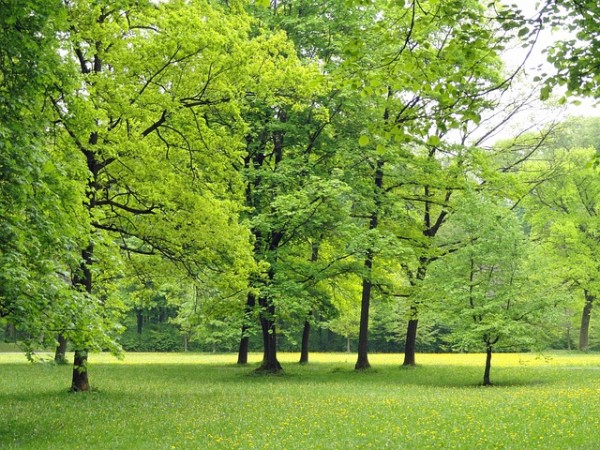Trees Protect 850 Lives from Diseases Caused by Air Pollution in the US: Research

New research finds trees in the U.S. help prevent 850 early deaths and 670,000 cases of respiratory illnesses.
The Environment Protection Agency recently examined the levels of harmful gasses like nitrogen dioxide, sulfur dioxide and particulate matter in the atmosphere. Its earlier researches have linked many health ailments like lung infections, breathing problems, heart diseases and neurobiological disorders to overexposure to these pollutants. During 2005 nearly 130,000 deaths were caused due to the presence of particulate matter less than 2.5 microns and 4,700 succumbed to illnesses related to air pollution.
However, a report by the U.S. Forest Service found trees help eliminate pollutants and boost air quality by less than one percent. Although, the impact is statistically small, it can translate into annual saving of $7 billion on health care and decline in early mortality rate. In addition, the researchers noted trees grown all around the country cover only 34.2 percent. The diseases and negative side effects of prolonged exposure to pollutants are more prevalent in posh and urban parts of the U.S.
"In terms of impacts on human health, trees in urban areas are substantially more important than rural trees due to their proximity to people. We found that in general, the greater the tree cover, the greater the pollution removal, and the greater the removal and population density, the greater the value of human health benefits," said Dave Nowak of the U.S. Forest Service's Northern Research Station in a news release.
Almost 80 percent of the Americans reside in urban areas. These findings point to the importance of building parks and using spaces to plant trees in urban cities.
"This research underscores how truly essential urban forests are to people across the nation. Information and tools developed by Forest Service research are contributing to communities valuing and managing the 138 million acres of trees and forests that grace the nation's cities, towns and communities," said Michael T. Rains, Director of the Forest Service's Northern Research Station and the Forest Products Laboratory, reports the Daily Digest.
Jul 28, 2014 08:25 AM EDT




